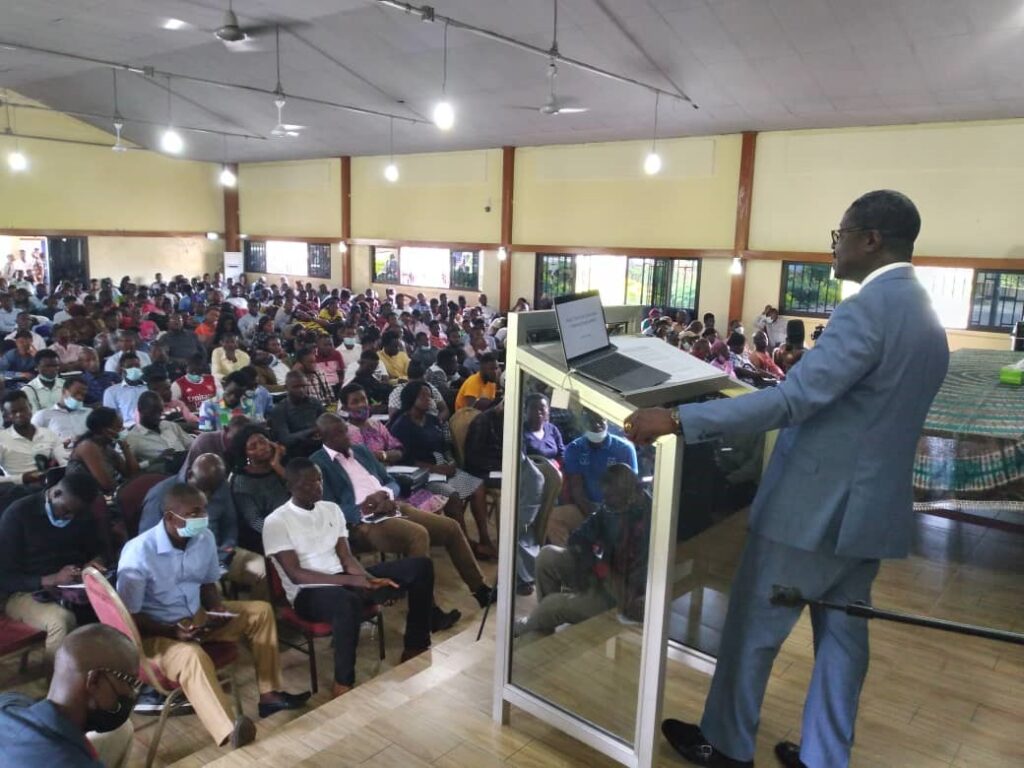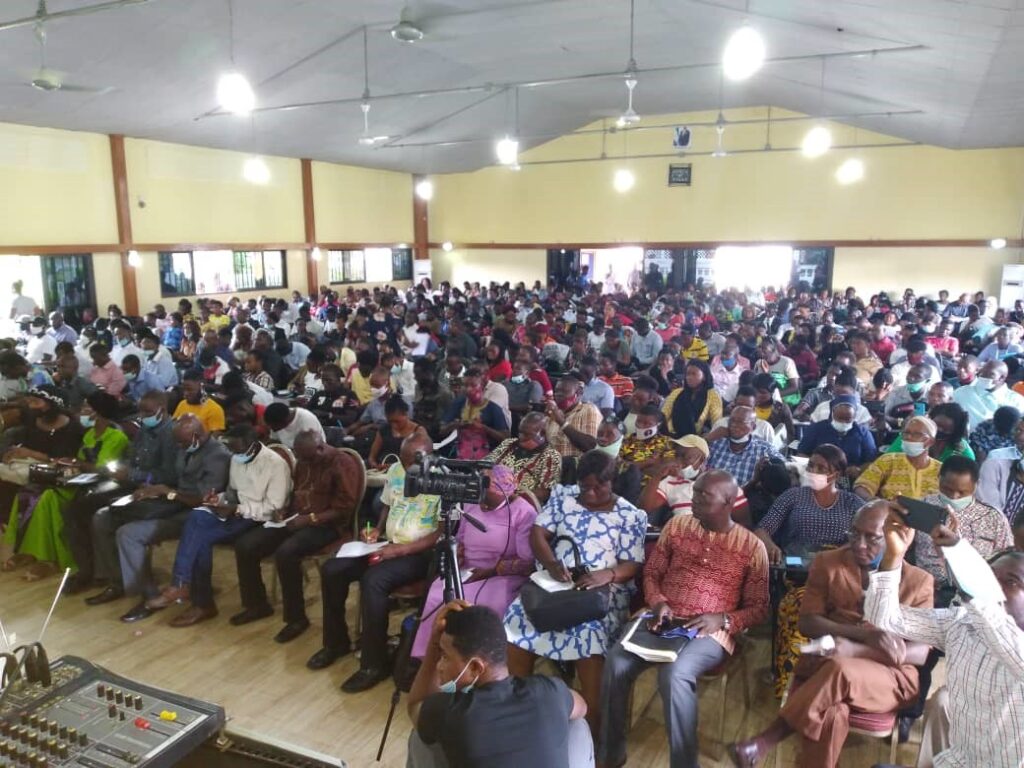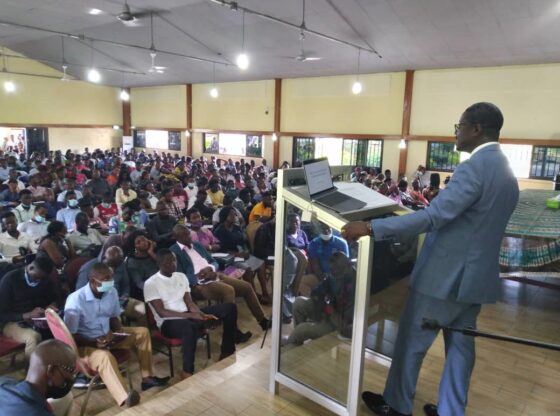By Ibrahim J. Conteh

Dr. Patrick M. Korwama, seasoned researcher and renowned Educationist thrilled students, staff members and the public in a well-attended Public Lecture delivered at the Milton Margai College of Education and Technology Great Hall, Goderich Campus on the theme: “The Role of Technical University National Development”.
In his opening statement, Dr. Korwama highlighted the need for such an engagement with the student body, staff members of the college, noting that science education is very important in the development of any nation and that Technical University is critical in improving productivity, and efficiency for better participation in economic development. He stated that many of the developing countries were able to achieve so much in science and technology because of their investment in technical field of higher institution of learning.
He pointed out that education for sustainable development covers different areas from elementary to university education. One of these areas is Technical and Vocational Education and Training (TVET), which is the type of education that emphasizes on the acquisition and application of the skills, knowledge attitudes required for employment in a particular occupation in any field of social and economic activity.
He maintained that over the years we have gotten it wrong as nation in considering TVET as separate sector rather than an integral part or vital component of our educational system that leads to the accusation of knowledge and expertise relevant to society and the development of a nation. Adding that is one among the many reasons why even the brighter students from primary schools would rather go to study Roman culture at FBC rather than TVET Institutions. Stressing that understanding the meaning of what Technical education entails is critical in the development of skills and knowledge in a manner, which aligned it to particular area of labour market and directly support it practical application.

Dr. Korwama emphasized that Technical Education systems play a crucial role in the social and economic development of a nation. Owing to their dynamic nature, they are continuously subject to the forces driving change in the schools, industry and society. He underscored the important why it is important for us as a nation to invest heavily on Technical education adding that the more money we spent on education, the better the outcome in the coming years. He lauded the effort of the government in allotting 20% of government budget on education; this he said is a step in the right direction in providing the needed resources in building the human capital.
In a PowerPoint presentation, Dr. Korwama displayed the global ranking of top ten (10) Universities of Science and Technology in Africa, in which the first and second ranking position in the continent are positioned in 1414 and 1525 global ranking respectively. This he said, display how as a continent we have not given much priority to technical education of higher learning. He iterates that Universities of technology are key to economic development, employment and underscored the necessity to raise the productivity of the informal sector. Some countries in sub-Sahara African in particular, governments, are renewing efforts to promote Technical and Vocational Education and Training (TVET) with the conviction that development of skills enhances productivity and sustains competiveness in the global economy. He explained that the characteristic of a technical university focuses on the creation, enhancement and application of technical knowledge in order to affect the growth of entrepreneur and enhance productivity in the economy.
Dr. Korwama stated that as Nation, Successive government has not given much attention to this aspect of education. Consequently, the society lacks skilled technicians and innovators, this he said has given rise to youth unemployment due to lack of employability skills that are often acquired from Technical universities and colleges. Adding that most analysts agree that today’s employers’ demand more skills than they are did in the past. He furthered that several reports have shown factors that have contributed to the rising demand for skills in the labor market to include: technological and organizational change, trade, deregulation of key industries, and the decline of unions, especially developing countries like ours need balanced development through all of the educational sectors in order to make significant progress in terms of national development.
In his concluding statement, Dr. Korwama maintained that technical education ensured that graduates from the various educational institutions had the necessary knowledge and skills for the many new jobs, which were created in a rapidly growing economy, highlighting the need for us as a nation to focus on ICT and STEM as the bedrock of universities of Technology.


